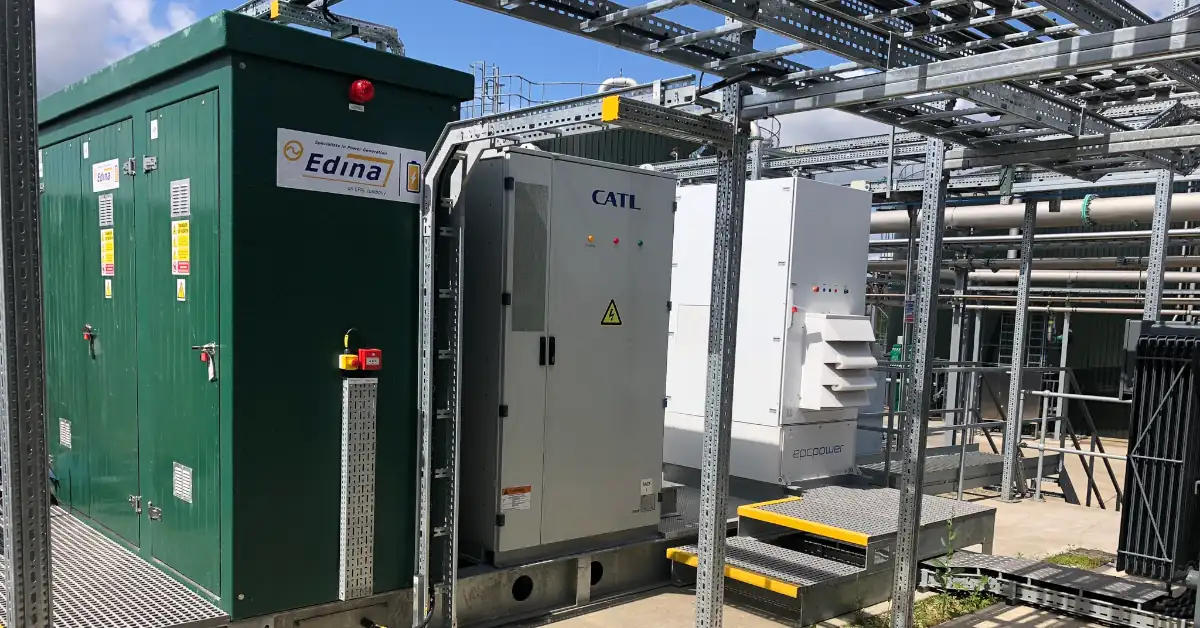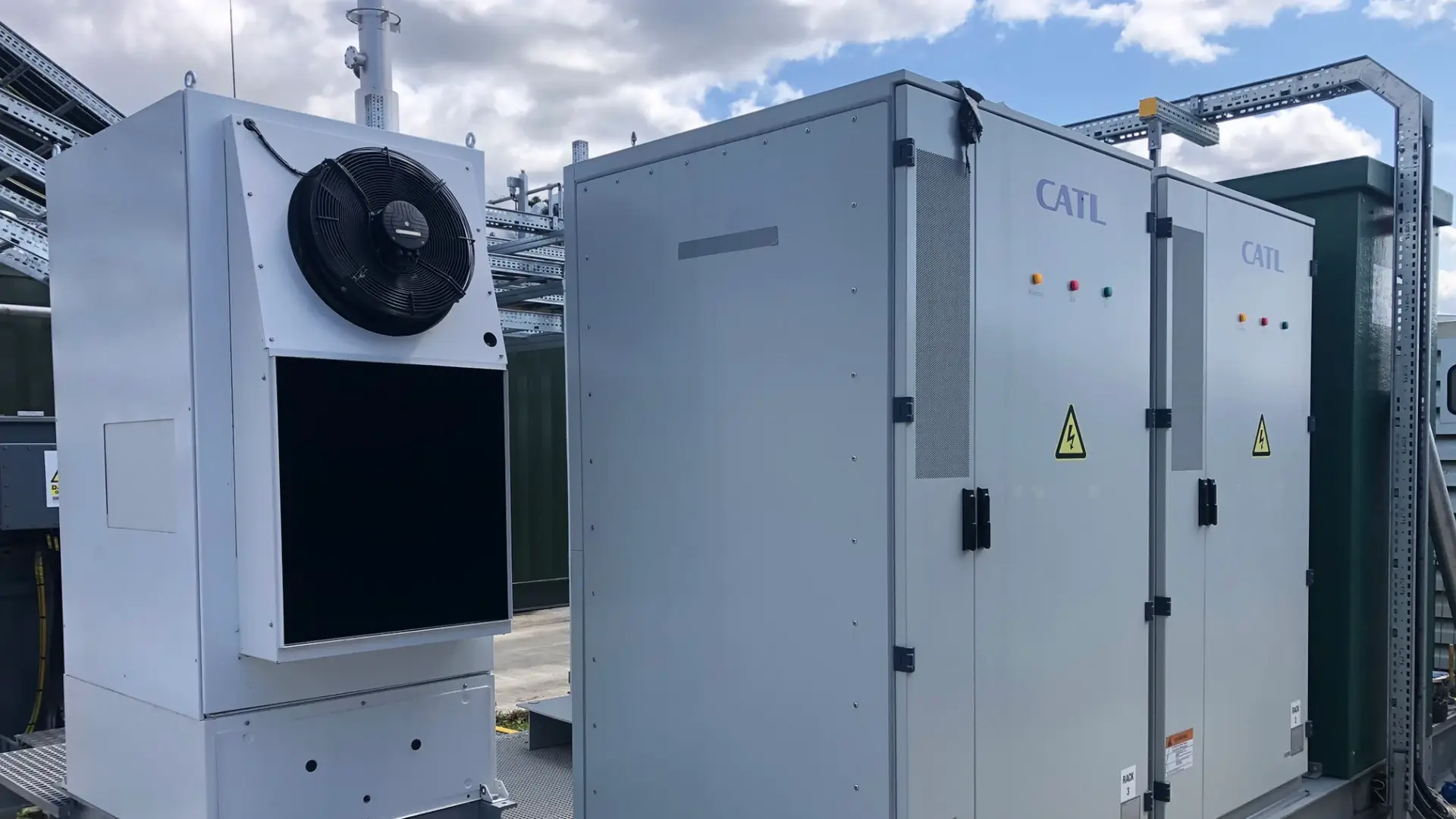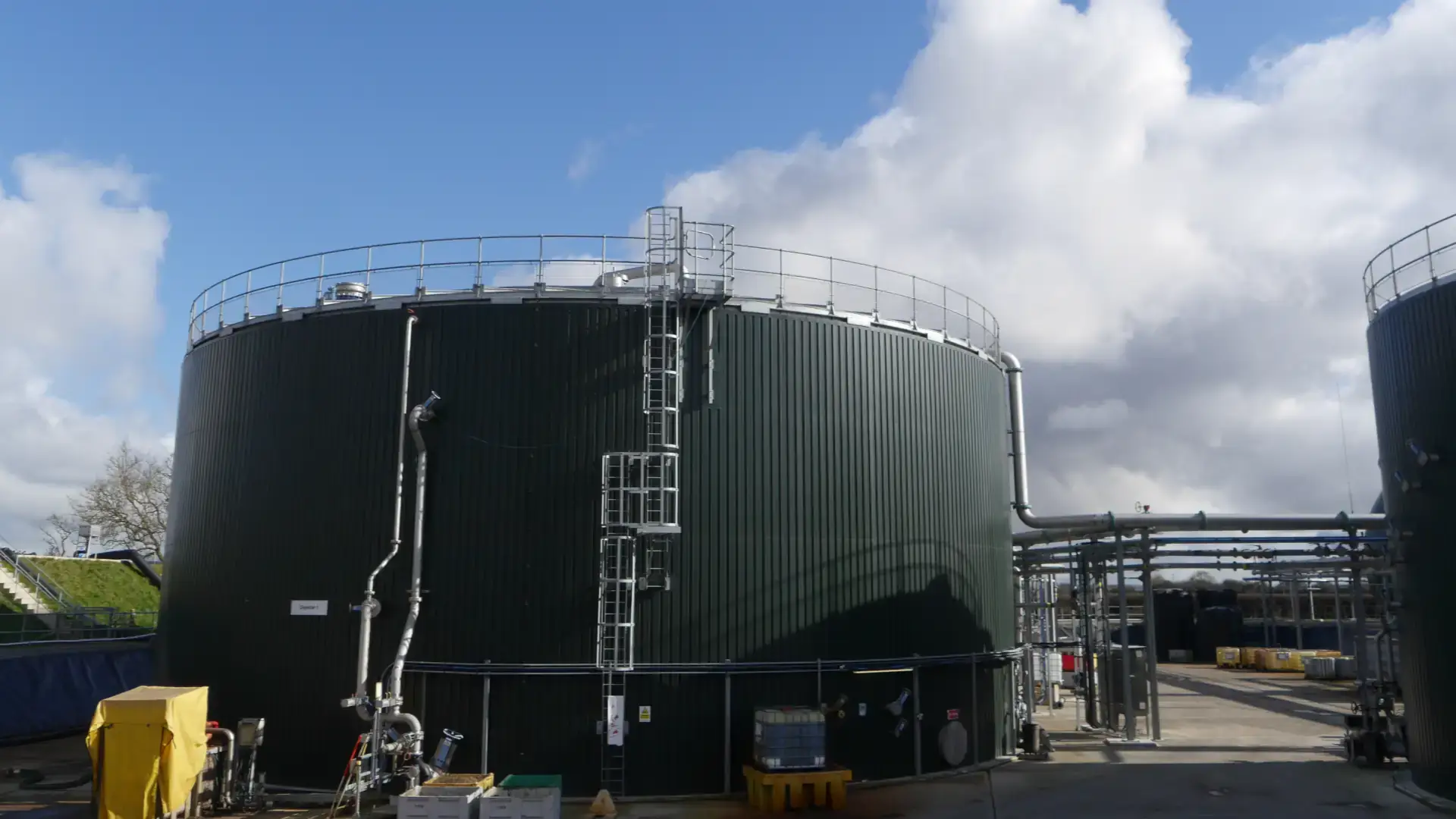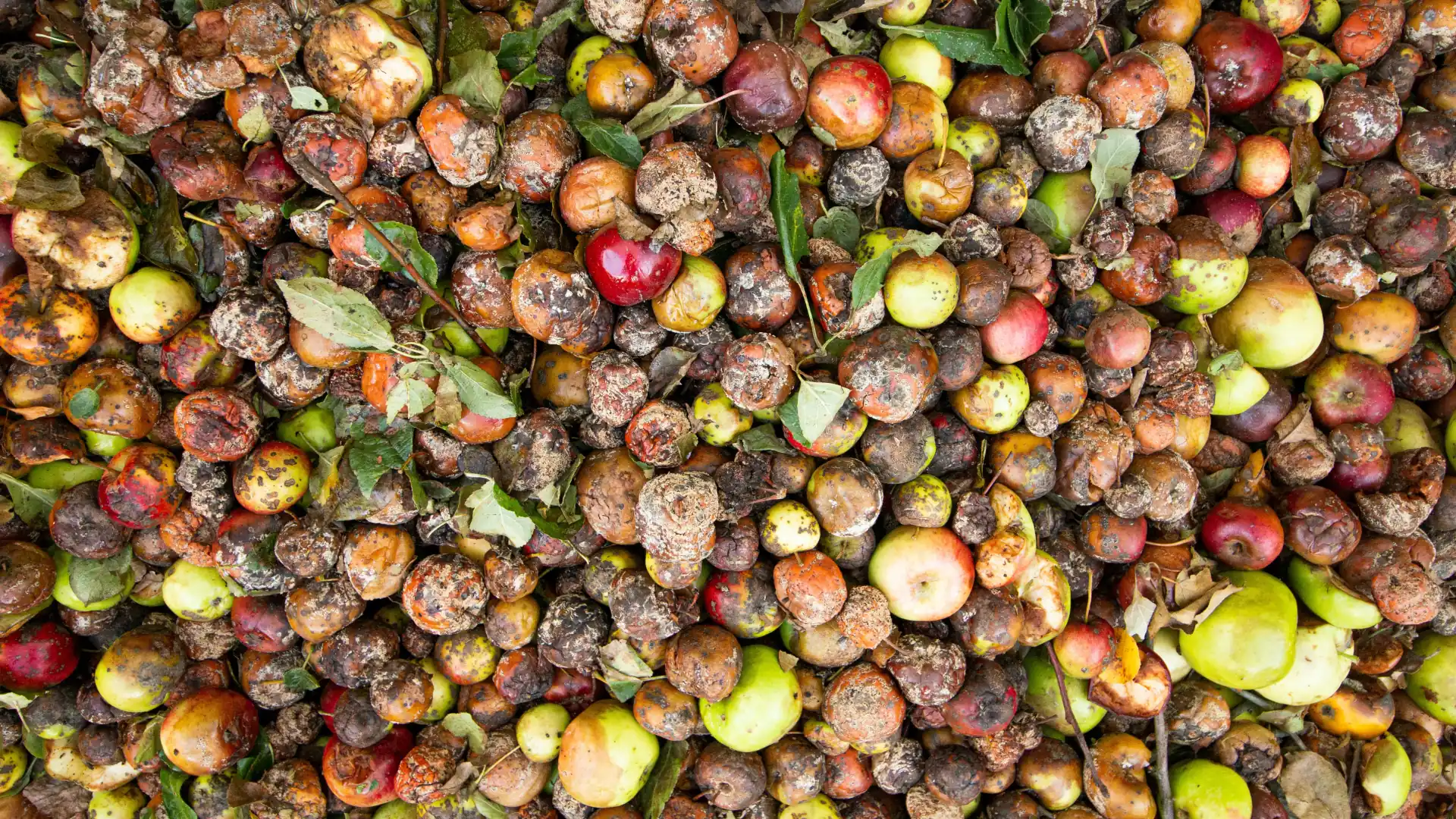



Holme Bioenergy is located across an 8-acre site in Holme, North Yorkshire and owned and operated by BioteCH4. BioteCH4 is a commercial food waste processor for industries including food manufacturers, producers and distributors, waste management companies, waste brokers and local authorities. The captured waste is recycled through the process of Anaerobic Digestion (AD) to produce renewable gas and electricity for the UK grid.
Holme Bioenergy is one of BioteCH4’s five sites and can process 80,000 metric tonnes of organic waste per year from which the AD digesters generate 11MWth of renewable biogas.
The biogas is upgraded, removing CO2 and other contaminants to produce biomethane and injected into the gas network to supply renewable natural gas. In this way, the organic feedstock promotes a circular economy by producing energy-from-waste and greening the gas grid.
Because of the limitations of the electricity supply grid in the area, the Holme Bioenergy site has no mains electrical connection, and operates isolated from the network. This constraint means the site infrastructure power requirements were met using diesel power generation.
The rising cost of diesel fuel, alongside the cessation of the Government red diesel rebate scheme in April 2022, meant the cost of power on site was excessive.
Although as a renewable energy producing site, the net CO2 production is significantly negative, however, using continuous diesel power generation is not ideal.
To reduce operational costs and improve their CO2 sustainability, BioteCH4 considered alternative means of generating their electrical load on-site.
Russ Baker, Chief Technical Officer, said, “As a group, we are committed to becoming as carbon neutral as possible, as quickly as practicably possible. This means we have looked at the way we do things, our existing electrical connections, power sources and have investigated more innovative ways of generating our own electricity but without increasing our carbon footprint.”
The sites existing gas connection meant a gas-to-power solution could be realised. As such, a CHP solution using gas engines to produce electricity and heat as hot water for on-site consumption offered a credible energy transition pathway.
However, with no electrical connection to the grid, gas engines are not particularly good at operating on their own in island mode configuration. Load steps are poor unlike diesel generation and can easily cause the gas engine to trip. This presented several challenges. If the gas engines were to experience an engine trip, additional resilience would be required to ensure a continuous seamless supply of power at site.

The team of experts we have both within the group and those we chose to partner with allow us the flexibility to adapt in times of change and we’re in a fortunate position that our business is agile enough to implement that change relatively quickly so we recognise the benefits quicker too.
Edina, a distributed energy solutions provider for CHP and a system-integrator for battery energy storage system (BESS) solutions proposed a microgrid hybrid solution co-locating reciprocating gas engines and battery energy storage, controlled by an energy management system.
Edina supplied and installed two, duty and standby, hydrogen-ready CHP plants rated at 1.2MW electrical output each. The heat output from the gas engines is captured and meets the site process demand for heating and hot water and achieves energy utilisation of up to 90% during the winter months, which is significant when comparing import grid electricity and conventional heat production.
When compared to the previous diesel power generation, the transition to gas CHP saves the site an additional 2,500 tonnes CO2 per year and reduces site energy costs by 50% per year.
The inclusion of a 1MW 1 hour duration BESS provides energy resilience and smooths out the site energy demand to within the operating load step capabilities of the baseload gas engines. The BESS includes three CATL EnerOne Li-Ion LFP racks, EPC inverter, and Edina Energy Management System pre-mounted on an Edina engineered skid.
Finally, as a tertiary supply, a standby diesel generator with the potential to be fuelled by green Hydrotreated Vegetable Oil (HVO) provides an additional level of energy resilience.
The inclusion of a private wire network allows BioteCH4 to export surplus power to its neighbouring engineering and construction business Park Fabrications for expansion and business growth.
The co-location of these technologies meets the site's electrical demand, and the microgrid infrastructure allows BioteCH4 to manage its power requirement independently. Using interim transitionary low-carbon natural gas within the CHP plants improves its carbon positioning and offers potential for biogas/biomethane fuel utilisation and future fuel switching to hydrogen-blends when available.
These technologies support the future growth of the business through future proofing BioteCH4’s energy production, through sustainable sources, in line with its ethos and sustainability goals.
Due to the success of Holme Bioenergy project, BioteCH4 have also invested in another hybrid energy project with Edina, co-locating a 1MW 1 hour duration BESS and two 1MWe hydrogen-ready CHP plants at its R100 Energy site, located in Goole, Yorkshire.

Client:
BioteCH4
Location:
Holme, UK
Capacity:
2 x 1.2MWe CHP engines and 1MW BESS
Operational:
2023
Manufacturer:
MWM CATL
Packager:
Edina
Primary Fuel:
Natural Gas
R100 Energy transitions to low carbon sustainable solution to tackle energy trilemma
Read moreEdina delivers Combined Heat and Power (CHP) solution for Dynex Semiconductors as part of its sustainability pathway
Read more



Copyright © Edina. All Rights Reserved.